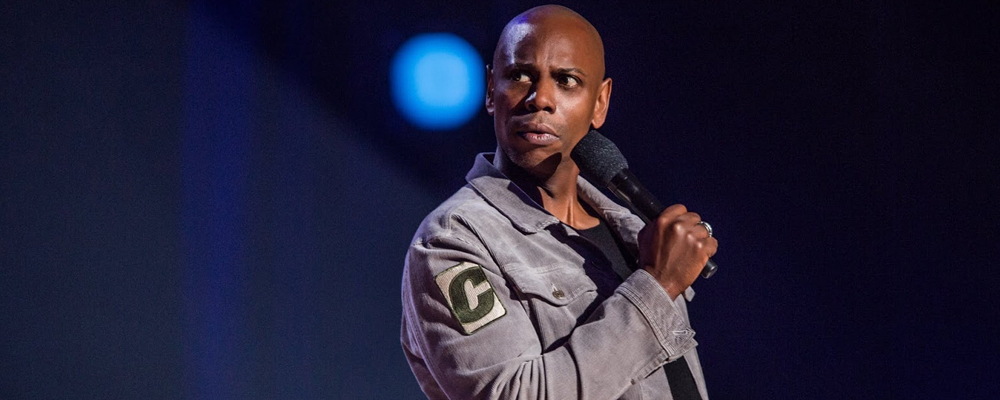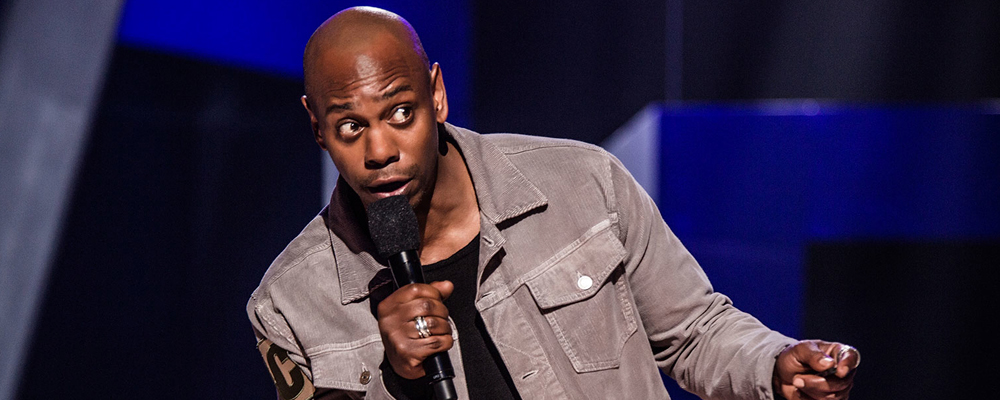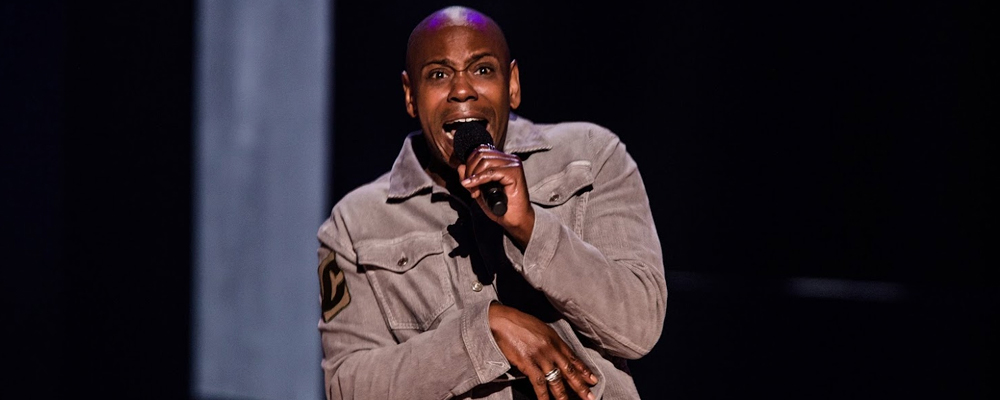Dave Chappelle Roasts Political Correctness in New Netflix Special
Alci Rengifo
Dave Chappelle is fine tuned to the changing cultural winds in America, but he could care less about going with the flow. His new Netflix double bill, “Equanimity and the Bird Revelation,” is a set of two performances in which Chappelle gleefully mocks, meditates and gets serious about the year’s biggest, most controversial headlines. Everything is game on stage for the comedian, from Donald Trump to Harvey Weinstein. But the big elephant in the room is race. How we see each other, how we stereotype ourselves and the buried prejudices beneath society are like a sore Chappelle likes to endlessly poke, but never without purpose, even when he cops out with tired vulgarity. If some of the jokes make you feel a bit uneasy, that’s probably the point. But the special, especially in the first episode, can be a rowdy good time, with Chappelle acting as a conduit for a lot of the things we know everyone is thinking, but few dare mention.
In the first episode, “Equanimity,” Chappelle begins the performance at the Warner Theater shredding cultural perceptions about race and class. He mocks rappers like Nas for lamenting their middle class roots, saying “My parents did just well enough so I could grow up poor around white people.” When he gets to the 2016 election, he recalls getting in line to vote in Ohio with “dusty poor white people.” When he hears them talk about Trump as some sort of working class hero, Chappelle insists, “You are poor. He is actually fighting for me.” This kind of wicked satire is what works the best in “Equanimity,” as Chappelle pumps up the volume with moments of biting truth, “I drove up in my Porsche, the Obama years were good to me.” Trump becomes the cabaret-like target of Chappelle’s fury, as he describes the president’s attempts at intimidating North Korea to “rap battles.” For him the entire Trump episode in American history can be summed up as “like seeing a crack pipe in your Uber driver’s passenger seat.”
The riskiest segment has to deal Chappelle’s views on trans-gender culture, which he begins by mocking in a kind of misogynist mindset, but Chappelle does an interesting, subtle thing and injects political arguments into the routine that are hard to deny. When discussing Caitlyn Jenner’s media exploits to change sex and name, he wonders “why is it easier for Bruce Jenner to change gender than for Cassius Clay to change his name?” In this millennial moment the question could be highly provocative, but it’s hard to deny that Chappelle’s points are not without thought. This goes to the heart of Chappelle’s technique: He wants to rattle sensibilities in an era of sensitivity. “Everything you say upsets somebody,” complains Chappelle, describing modern audiences having “brittle ears.”
Walking the stage before the vast audience, occasionally vaping, Chappelle switches from provocateur to contemplative critic, taking swipes at even the defeated Hillary Clinton (“she was like Darth Vader reading the ‘I Have a Dream’ speech”). Masturbating after 40, unknowingly dancing with a trans person at a club, all is fodder for Chappelle. But he always swerves into smarter territory. In “Equanimity” he truly drops the humor and narrates the tragic story of Emmett Till, a young black man killed by racists in 1955 for whistling at a white woman. Chappelle uses the tale to explain how the Civil Rights movement makes a comedian like him possible. It’s a great moment where you can hear a pin drop in the room.
The second half of the special, “The Bird Revelation,” filmed in an LA club, is the weakest of the two performances. It starts off as an absolute risk taker, with Chappelle exploring the #MeToo movement and the Harvey Weinstein scandal. “Harvey Weinstein was the first man who’s picture I looked at and thought, ‘yeah he rapes,’” says Chappelle, going into a monologue on the brutal truth about ugliness. He manages to even find the humor in the Louis C.K. story, turning it into a commentary on the “brittle” nature of those who can’t make in the industry (“she couldn’t just hang up the phone?”). But Chappelle stretches it out, and it’s obvious he wants to bank on the moment and finds himself looking at the bottom of the barrel by episode’s end. Still, when it’s funny it is provocative and daringly irreverent.
Maybe Dave Chappelle is precisely the humor some will seek out as this tumultuous year comes to a close. Even when you feel challenged, Chappelle does it with the kind of gusto that never bores. In these challenging times, maybe it’s not such a bad idea to laugh a little at the madness of it all.
“Dave Chappelle: Equanimity and the Bird Revelation” premieres Dec. 31 on Netflix



